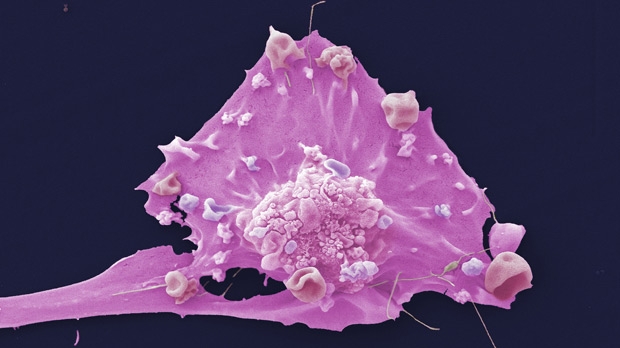Researchers from ECU’s School of Medical and Health Sciences analysed data from the Danish Diet, Cancer and Health cohort that assessed the diets of 53,048 Danes over 23 years. They found that people who habitually consumed moderate to high amounts of foods rich in flavonoids, compounds found in plant-based foods…...
The Lancet: A link between different forms of menopausal hormone therapy and breast cancer
An international collaboration, using data from more than 100,000 women with breast cancer from 58 epidemiological studies worldwide, has found that using menopausal hormone therapy (MHT) is associated with an increased risk of breast cancer, and that some increased risk persists for more than a decade after use stops. The…...
WPI researchers create cancer-detecting chip
A mechanical engineering professor at Worcester Polytechnic Institute and his research team believe they have discovered a revolutionary new way to detect cancer. Balaji Panchapakesan said their liquid biopsy chip has been 100% effective in finding breast or lung cancer in more than a dozen patients in early tests, and…...
News digest – NHS staff shortages, HPV vaccine in Rwanda, prostate cancer guidelines and sunscreen chemicals
Read about this week News Digest’s cancer research breakthrough headlines including National screening programs, a new drug for aggressive childhood brain cancer, HPV vaccination in Rwanda, and more. Original article at: https://scienceblog.cancerresearchuk.org/2019/05/11/news-digest-nhs-staff-shortages-hpv-vaccine-in-rwanda-prostate-cancer-guidelines-and-sunscreen-chemicals/...
Skin and breast cancer drugs approved for NHS use in Scotland
Two cancer drugs have been approved for patients on the NHS in Scotland. An immunotherapy for some people with advanced skin cancer and a targeted drug for some patients with breast cancer got the green light this week. Pembrolizumab (Keytruda) will now be an option for patients whose melanoma has spread to the…...
Bowel cancer rates are rising in young adults, but do we know what’s behind the increase?
Bowel cancer rates are increasing in adults aged between 20 and 50, according to data from 2 big studies published this week. Both studies looked at large numbers of people across several countries, including the UK, providing strong evidence on the number of people developing bowel cancer. And some worrying trends emerged.…...
New therapeutic avenue in the fight against chronic liver disease
Chronic liver disease is known as the silent killer, showing no obvious symptoms until the disease has progressed to an advanced stage. Therefore, making a proper diagnosis in the early stage of disease progression a clinical challenge. An international team of researchers, affiliated with UNIST, has identified a novel route that regulates the…...
Molecular profiling could catch lung cancer early and lead to new treatments
Before lung cancer develops, precancerous lesions are found in the airway, but only some of these will actually become lung cancer, while others will disappear or remain benign without becoming harmful. Under the microscope, the lesions look the same, making it difficult to know which lesions to treat. A new…...
Antibodies to a retina protein to be used as a kidney cancer marker
Tumors can be benign or malignant. Benign tumors can evolve into malignant ones. Around 90 to 93% of all kidney growths turn out to be malignant, and there are currently no effective methods for early diagnostics. The initial stages of kidney cancer have no signs or specific symptoms, so patients are often…...









